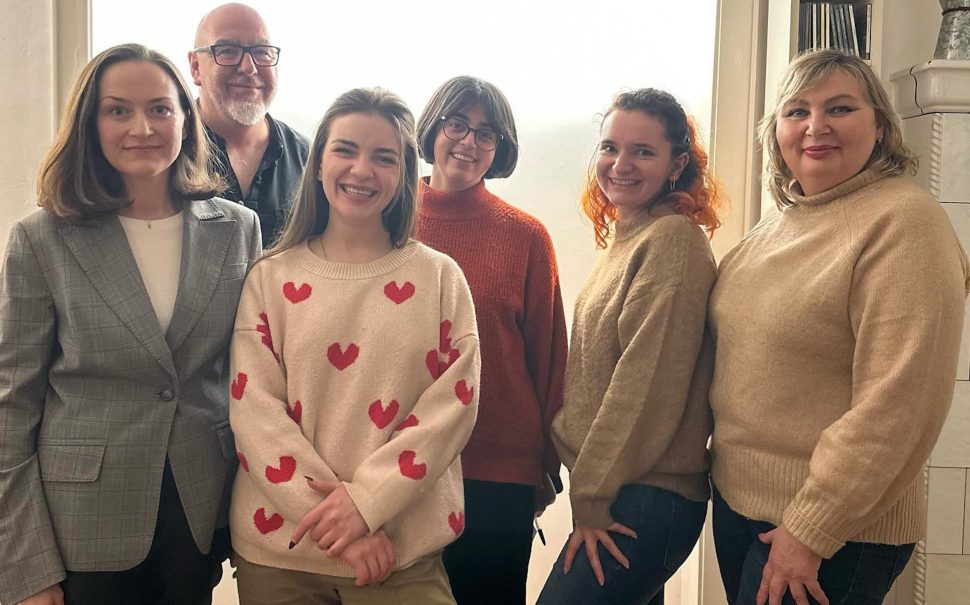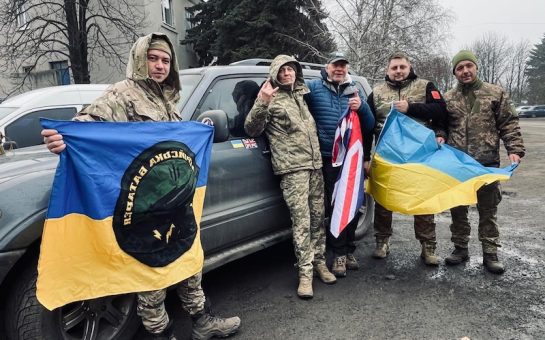Well-educated Ukrainians have been denied jobs due to language barriers and unacceptance of their nation’s qualifications since settling in Germany after the Russian invasion.
Refugees with qualifications to be engineers and doctors are being denied direct entry into roles unless they complete a high-level of German language learning or more advanced training.
Over 1.13 million Ukrainians have settled in Germany since the war began, but only 214,000 (18.9%) have a job, DW reported last week.
Oleh, who arrived in Germany from Kyiv in December 2022, said: “For a lot of people, they cannot so quickly and so easily learn German. For many people who come here, it is a big problem to learn the language.”
In Germany refugees are offered free language lessons by the government, which they can sign up to as soon as they arrive.
Such skills are key as over 90% of the companies in Germany require language fluency, according to Career Management, a job consultancy.
Oleh, 28, lived in Kyiv for 12 years during which time he graduated with a software engineering degree. At school he learnt English but has had to learn German from scratch.
Oleh, who now lives in Dortmund, Bochum, said: “Once I pass my exams I will go direct to the job.”
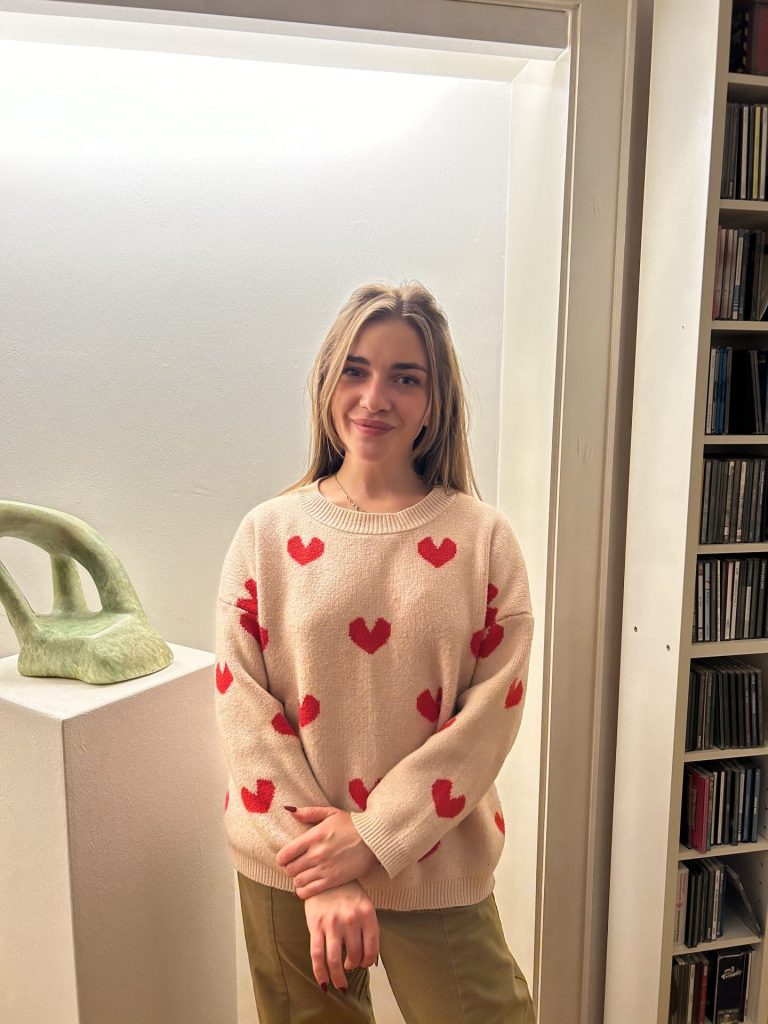
Credit: Jasmine Charles
Even with a high level of language proficiency, many refugees are struggling to get professional jobs as their Ukrainian degrees are not recognised to the same extent.
Iryna Lushpai, a qualified doctor with a degree from Vinnytsia National Pirogov Memorial Medical University, has not been allowed to practise medicine in Germany because she did not complete her practical training in Ukraine due to the war.
Although she studied for six years and received a medical qualification, the same number of years as required in Germany, she was told to study for an extra 4.5 years in the country to qualify.
Lushpai, 26, said: “There are alot of doctors here that do not have practice but we have graduated, we have a degree, documents and the language.”
However, competition for medical spaces at German universities is high as home students must achieve a 1.0 grade in their abitur exams, taken in their final year of school.
In the German education system, 1.0 is the highest possible grade to achieve – only about 0.2%–3% of those who take the exam achieve this. In comparison, 21.3% of students taking A-levels in England achieve 3As or higher.
For foreign students, it is even harder to secure a place as there is a 5% quota for courses including medicine, dentistry and pharmacy.
Lushpai said: “I feel stressed and depressed. I really spent a lot of time learning the language but I cannot get a place at university.”
In the meantime Lushpai is studying nursing to improve her language skills and gain experience in a medical environment, but said that this is not her long-term goal.
Lushpai added: “I can’t do this. Maybe I will finish it because it is good for my documents in Germany. It is something to do. But I can’t do this.”
Given the competition, she has considered moving to Austria to study at the University of Vienna, where she was told she would only need to complete one year of studying before being qualified to practise in the country.
However, this would mean she would need to leave her life in Germany, which has the largest population of Ukrainian refugees in Europe, behind.
Lushpai, who left Ukraine in April 2022 to live in Bochum, said: “I have my family friends here. My flat, everything. But I have to think about my future, and I am a doctor, and doctors should stay doctors.
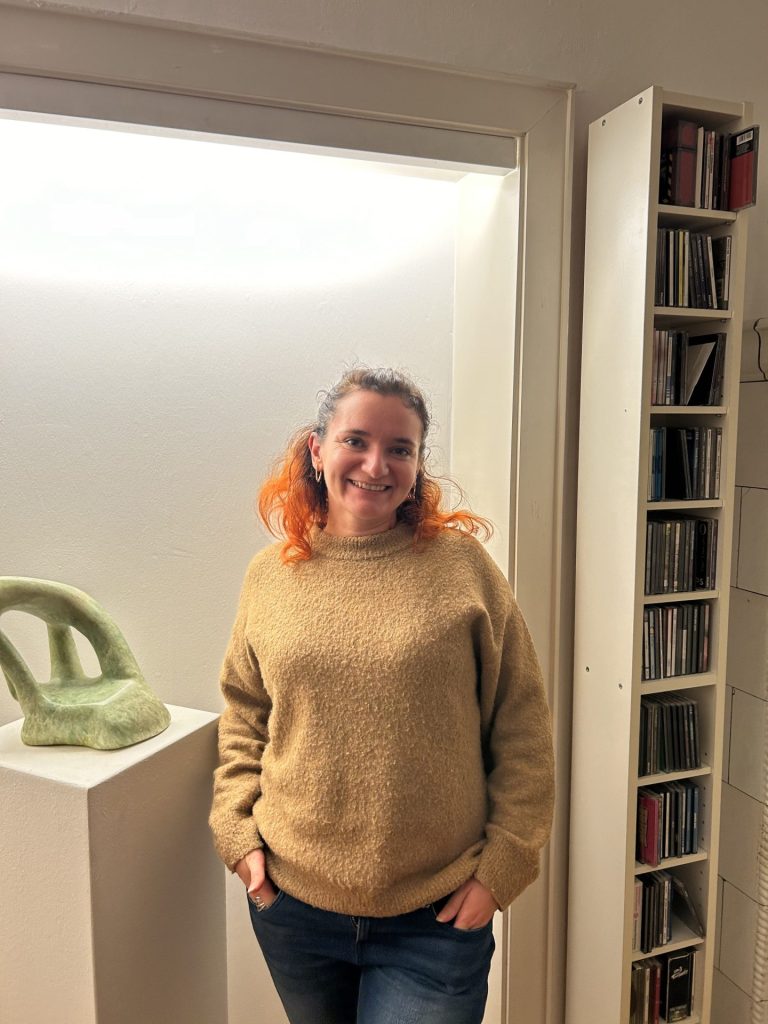
Credit: Jasmine Charles
“Maybe I will learn something here, earn a bit of money and then try another land.”
Andreas Stiewe, the leader of the Bochum solidaris, a humanitarian charity which helped Ukrainian refugees arriving in Germany at the start of the war, said: “The German government is really stupid. They say we do not have enough doctors.
“They get people who speak German to a very high level and they don’t give the possibility for entry.”
For many Ukrainians, they have lived in Germany for the duration of the war – which came up to its two-year anniversary on February 24.
For Ukrainians who already had job security and a prosperous career and home life, moving to Germany meant starting life afresh.
Svitlana, who moved to Germany with her daughter in March 2022, added: “You started your life from the very beginning and you need to start it again.”
Svitlana was a translator for a travel agency in Ukraine, working in English, Ukrainian and Russia. She also lived in Bahrain for two years.
Finding a similar job to the one she had in Ukraine has proved difficult, and instead she is trying to study for a teaching qualification to provide a new life for her daughter.
Svitlana, 35, said: “I came here to stay, because of my daughter. Before, I worked abroad a lot and my daughter stayed with my parents. I thought it would be hard for her to move country a lot with me.
“When I came here, I said I would not go back to Ukraine for one or two years.”
However, Svitlana who lives in Bochum, said she would need to move to a different city to study, meaning she would need to find a new apartment and school for her daughter.
She added: “I don’t want to work as a teacher. I want to find something else and it is not so easy.”
Ukrainians who had senior jobs in their homeland are unable to reach the same level in Germany.
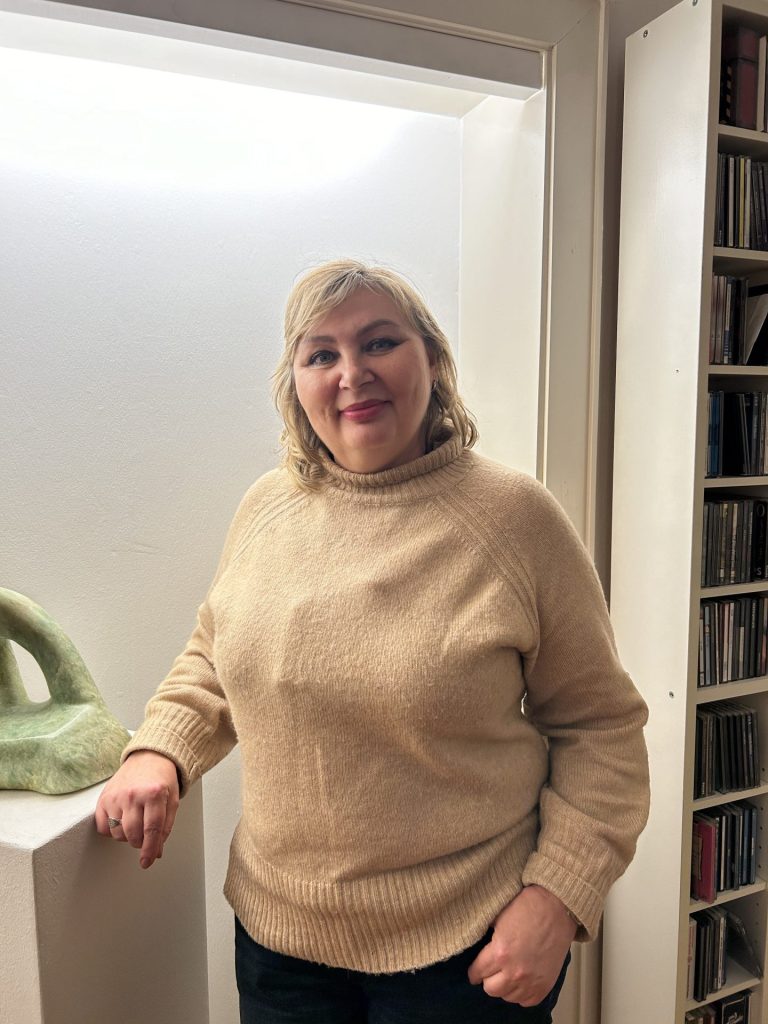
Credit: Jasmine Charles
Olena lived in Kharkiv, the second biggest city in Ukraine and was a paediatrician in a children rehabilitation centre for 30 years before the war broke.
She moved to Germany with her daughter, 22, but fears she will never be able to have the same life and career that she once had.
Olena, 58, said: “I have lost my job. I must find another job. It is difficult for me because I am not so young anymore.
“Unfortunately here we will always be immigrants. This level of seniority like I had in Ukraine, I cannot reach it here, ever again.”
However, she is happy because she believes there is hope for her daughter. She added: “I think about my daughter, she is young, and I think that she can have good opportunities here.”
Feature pic caption: Left to right: Nataliia Fakhrutdinova, Andreas Stiewe, Iryna Lushpai, Jasmine Charles (author), Svitlana, Olena met in Bochum, Germany
